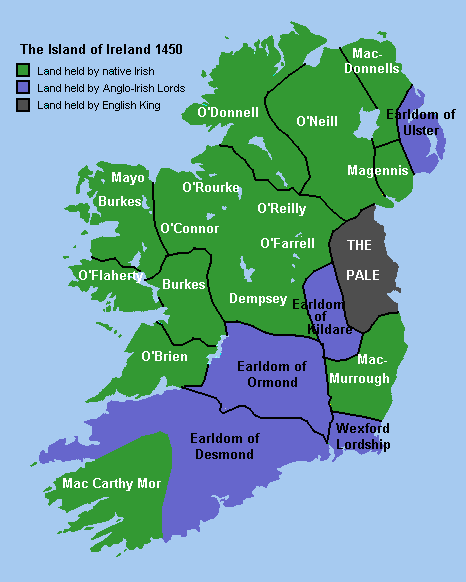The Importance of Naming Irish

Before we archive this season of St. Patrick, let us reflect upon an aspect of the Irish impact on the United States—one that is obvious, yet little commented upon. And that is how Irish names have become so common as first names that people don’t give a thought about it. First, a little history.
One of the gifts from the English to the Irish was the English language and the abandonment of the awkward, often unpronounceable old Gaelic versions of names now common in English. Gallagher, for instance, was originally O’Gallchobhairk, Kennedy was O’Cinneide and Murphy was O’Murchada.
The Irish had streamlined those names in the century before arriving in the U.S. in large numbers in the mid-1800s, driven from home by famine and a life of near slavery under British rule. Note that a mere 75 years before, Irish names were all but absent on the Declaration of Independence. There was a Lynch from South Carolina but only Charles Carroll, a planter from Maryland, is remembered. A rare Irish Catholic, he was even rarer as one the wealthiest men in the colonies.
Irish immigrants for the most part proudly clung to their names—even if some of them could barely spell them—often at a cost. “No Irish Need Apply” signs were notorious. That prejudice gradually evaporated, so much so that today those Irish last names have enjoyed unique popularity—as first names. Today, of the ten most common Irish surnames, six of them have come to enjoy some use as first names. Murphy, Kelly, Brian, Ryan, Connor and Neil all began as last names or variations of some.
Go down the list of Irish last names and those used at least occasionally as first names jump out by the dozens. Riley, Emmett, Smith, Doyle, Murray, Quinn, Carroll, Grady, Brady, Connel, Burke, Nolan, Regan, Donovan, Barry, Ward, Graham, Cullen, King, Scott. In truth, not all are exclusively Irish; a number are shared by the rest of the British Isles, notably Scotland, whose genetics are virtually identical to Ireland.
This phenomenon, which has attracted its own websites, is a fairly recent development. The very popular name Ryan was little used until the 1970s when actor Ryan O’Neal brought attention to it. Some that have gained recent currency are literally reborn. Cormac (the Gaelic equivalent of Charles) traces to a fifth-century king named Cormac. Many Irish took that name during a time when people had only one name, but when the English imposed second names on their subjects, Cormac became McCormick. Now it has gone the other way. The distinguished author Cormac McCarthy, who changed his name from Charles, has led the charge.
Although the internet covers this subject in some detail, nowhere can we find an explanation for why the popularity of Irish names. Therefore let us conjecture. We think people take Irish names for children because they don’t know it. They are simply looking for acceptable American-sounding names. They want to fit in. And Irish names tend to be short—at least compared to other European backgrounds. This is not a trend likely to spread to other ethnic strains. We are not likely to see a lot of people with first names such as Putin, DiMaggio or Brzezinski.
Any way you slice it, it is what it is, just another feather in the crowded bonnet of a nationality who came to this country in poverty and hunger, anxious to blend with the established Anglo culture, and wound up being the blender itself.
Photo via
